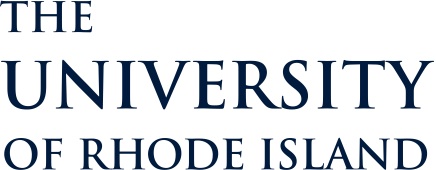Newswise — A nine-member reporting team with The Record newspaper (Bergen County, N.J.) is the 2006 winner of the Grantham Prize for Excellence in Reporting on the Environment. The team won the $75,000 prize for its "Toxic Legacy" investigative series on pollution caused by a Mahwah, N.J., Ford Motor Company automobile-assembly plant.
Grantham Prize jurors described The Record's 2005 series as "environmental watchdog reporting of the highest order, marked by exhaustive reporting, stellar writing, and an innovative multimedia presentation that sets a new standard." The award is to be shared by nine Record journalists who spent eight months investigating how actions of the company, government officials, and organized crime exposed northern New Jersey residents to numerous environmental risks.
The University of Rhode Island's Metcalf Institute for Marine and Environmental Reporting and the Grantham Foundation for the Protection of the Environment created the Grantham prize last year. The prize honors the work of one journalist or team of journalists for exemplary reporting on the environment. The annual prize is open to journalists, writers and producers in the U.S. and Canada and recognizes nonfiction work published or broadcast in the previous calendar year.
The Record's October 2 " 6, 2005, series led to an unprecedented federal re-listing of the contaminated site as a Superfund national priority cleanup site. The series prompted the Environmental Protection Agency's Inspector General to initiate a first-ever investigation into whether "racial, cultural or socioeconomic issues" played a role in the government's cleanup shortcomings, and it led to a federal recommendation for health screening of hundreds of residents in the Ringwood, N.J., area affected by the site. The paper's website for the series consists of an impressive collection of reporters' comments, video, official documents, maps, photographs, and text of the actual series.
The Grantham Prize jurors also chose to recognize three additional works of exemplary environmental journalism. The following entries will receive "Awards of Special Merit," each carrying a $5,000 prize.
Douglas Fischer of the Oakland Tribune, for his series "Our Body's Burden: Our Chemical Legacy." The jurors said the series "takes science reporting to a new level by applying scientific method in an original investigation of the presence of toxic chemicals in a local family."
Elizabeth Kolbert of The New Yorker for "The Climate of Man," a series about the science and effects of climate change, which the jurors described as a "triumph of environmental journalism" for its "thoroughness, elegance, and persuasiveness.
John Sherman and Beau Kershaw of WBAL-TV, Baltimore, Md., for "Dirty Secret." The jurors called the piece "good, dogged broadcast journalism" marked by "great photography" and "a fast-paced editing style." Other local and national TV media "should follow WBAL's lead and give their employees the time and resources to produce outstanding TV environmental journalism that makes a difference," the jurors said.
The Record and the additional three honorees will receive their awards at a September 25 prize ceremony and seminar to be held at the Metcalf Institute in Narragansett, R.I., on September 25.
The Grantham Prize was funded by Jeremy and Hannelore Grantham through The Grantham Foundation for the Protection of the Environment. The foundation supports natural resource conservation programs both in the United States and internationally. Jeremy Grantham is a Boston-based investment strategist and Hannelore Grantham is the Director of The Grantham Foundation.
The Metcalf Institute for Marine and Environmental Reporting was established in 1997 with funding from three media foundations -- the Belo Corporation, the Providence Journal Charitable Foundation and the Philip L. Graham Fund -- and the Telaka Foundation. It is named after the late Michael P. Metcalf, a visionary in journalism and publisher of The Providence Journal Bulletin from 1979-1987. The Metcalf Institute provides science training for reporters and editors to help improve the accuracy and clarity of marine and environmental reporting and offers journalism fellowships in support of diversity and reporting on science and the environment.
